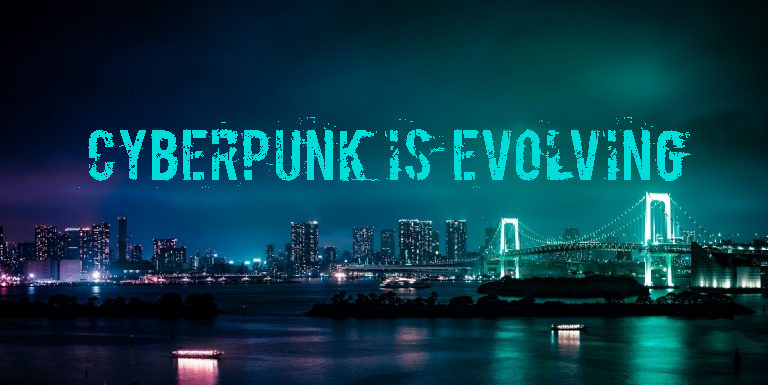
I recently stumbled across an article that sums up what some people have been noticing for a while: cyberpunk is becoming increasingly distorted by its transition into the cultural mainstream.
Cyberpunk was sci-fi for those who saw the power of the computer, its mounting ability to overtake everything personal (attention, time, privacy), and were bracing for impact. It was speculative fiction for everyone wary of the growing influence of massive corporations and ready to be leaders in the technological rebellion.To reflect this, cyberpunk’s protagonists—the personalities that would become the face of the genre—were uniformly disobedient.
The overall trend of science fiction being used as a marketing tool for major companies, as well as the co-opting of the cyberpunk visual palate by studios looking to profit off its popularity, present a bleak state for the genre. As Gibson seems to imply, the aesthetic created by cyberpunk has become divorced from its origins.
As is the case with most things popularly embraced, the edges of cyberpunk have been dulled to appeal to as many people as possible, with the very foundation of its creation being ignored in the process.
Although cyberpunk has never been without its problems, this article makes a good point. Punk art does not survive being sold to the establishment. Punk-themed entertainment produced by the corporate world is guaranteed to be stripped of its social commentary and processed into something palatable to those of all socio-economic backgrounds.
In short, don’t expect to see anything that challenges the status quo. These entertainment pieces will only give the briefest nod to exploring the causes behind a society where the rich get richer, the poor get poorer, and change becomes a more distant possibility with every passing year.
These creations won’t present any relevant protest, not even a shadow of one; they’re more like a sick inside joke. Down with the man! Surveillance is bad! Now a message from our sponsors: Get your Sony VR headset today! It’s the perfect way to relax in your coffin apartment after your back-to-back shifts at jobs that pay less than half the amount you need to survive.
Stressed? Just ask Siri to play you something relaxing. She–and Apple–know all your favorite songs, as well as where you like to eat, your bank account number and password, the names and addresses of everyone you’ve ever talked to, how often you visit your parents, your credit score, and every type of porn you’ve ever watched. (Don’t try to say you mis-clicked on that one video. Siri knows you liked it. You watched seven minutes and 49 seconds of it.)
Are you so exhausted that it’s hard to keep track of your wallet? Don’t worry– Google’s got your back! With Google wallet, you can use your phone just like a credit card. Give hackers and common thieves one more reason to data mine or outright swipe your poorly protected electronic devices.
Maybe if you’re lucky you work at one of the growing number of tech-forward companies that offer voluntary microchipping. You already have a chip in your passport, in your driver’s license, and in each of your credit cards. Why not get one universal chip implant that can serve as all of them? Never worry about losing your wallet again!
As I’ve said before, cyberpunk is no longer a scifi future. Cyberpunk is now. The world put forward in those 1980s classics is here, or very nearly so. There’s just less neon than we expected and flying cars aren’t going to be realistically achievable anytime soon.
Outside the corporate mega-production mainstream, there are two ways today’s writers of cyberpunk can go. We can cling to the 80s-inspired aesthetic– retro neon, weirdly cropped clothing, spiked leather, analogue data ports for human-machine interface– or we can evolve.
For me, cyberpunk has always been more about dark, gritty, high tech/low life realities and rebellious characters who yearn to break the corrupt corporate machine than about a certain visual aesthetic. And it’s easier than ever to translate this into our modern electronic dystopia.
We can swap our retro neon for LEDs that turn night into day. We can trade our analogue brain jacks for wireless implants and microscopic chipsets. We can integrate the technology of today and tomorrow into a genre that is perfect for the horrors of where we are and where we’re going.
Or we can emulate Hollywood and keep wallowing in meaningless distortions of the great cyberpunk stories of 30 years ago.
As cyberpunk authors and fans, the choice is ours. Which side are you on?
